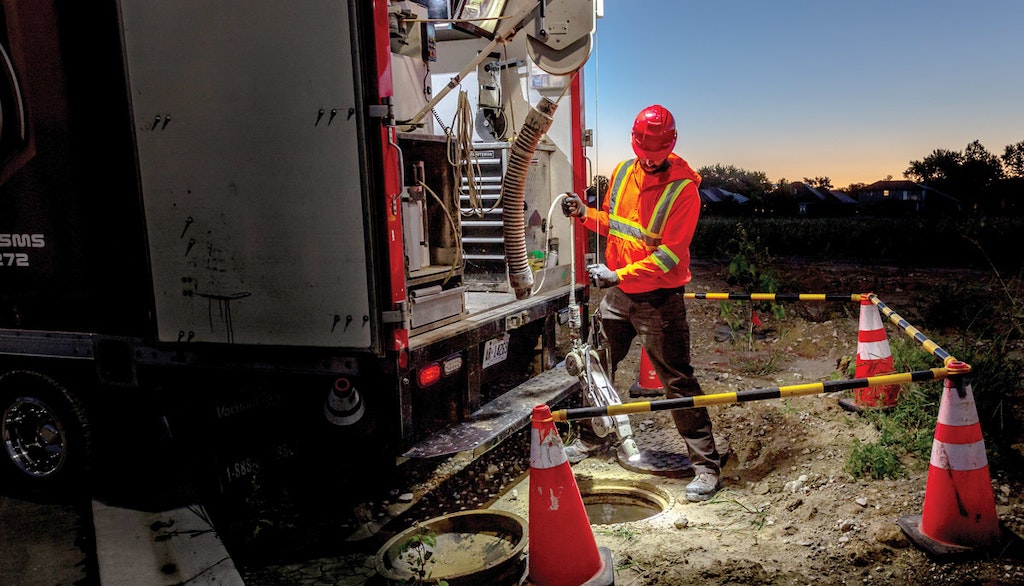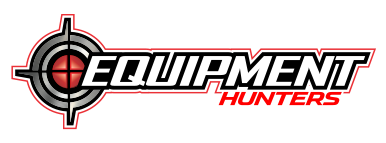
Hurricane Hydrovac Uses Acquisitions and Diversified Services to Spur Continued Growth
Every day, more than two dozen hydroexcavation and dry- and wet-vacuum trucks owned by Hurricane Hydrovac fan out across southern Ontario to expose underground utility lines, dig trenches, perform industrial cleaning, pump out septic tanks and flush municipal sewer lines.
Offering this broad range of services is a chief reason why the company — based in Essex, Ontario, about 15 miles southeast of downtown Detroit — has grown dramatically since its inception in 2015.
“We do all kinds of vacuum work,” says Shawn O’Keefe, who co-owns the company with business partner Max De Angelis. “If you have a job that requires a vac truck, we can do it. We’re licensed to carry anything.
“A lot of guys in this business just dig holes. But we do everything, from handling emergency spills and sewer flushing to industrial cleaning and railroad work.”
Strategic acquisitions also have played a key role in the company’s growth. In fact, the biggest acquisition — the 2015 purchase of Heaton Sanitation, which cleans grease traps and septic and holding tanks — essentially created Hurricane Hydrovac.
And in 2016, the company acquired Leamington-based Sewer Maintenance Services, which cleans and inspects municipal sewer lines and does trenchless pipeline rehabilitation work. The company was rebranded as Hurricane SMS and operates as a separate company from Hurricane Hydrovac.
Today, the company’s primary customers are gas and electric utilities, telecommunications companies, municipalities, general contractors that do roadwork and heavy construction, O’Keefe says.
WEALTH OF EXPERIENCE
O’Keefe, age 49, has deep roots in the excavation world. While attending high school and earning an engineering degree at the University of Windsor, he worked for his father’s company, Michael O’Keefe Ltd., which did excavating, septic tank pumping and industrial cleaning.
“I was running heavy equipment at age 15,” he recalls.
In 1996, after graduating from the university, O’Keefe started working for his father full time. Around 2009, he persuaded his father to add hydroexcavating to the company’s services. And in 2015, O’Keefe and De Angelis, whom O’Keefe knew after years of working together in the construction field, teamed up to buy Heaton Sanitation and form Hurricane Hydrovac.
Heaton Sanitation is still in business and focuses mostly on cleaning septic tanks, grease traps and holding tanks, while its hydroexcavation services were folded into the Hurricane Hydrovac umbrella.
“We saw there was a growing need for hydrovac service,” O’Keefe says. “It was a great opportunity because at the time, there wasn’t a ton of competition. So we wanted to get in early, dominate our area and expand into southern Ontario.
“Now there’s a ton of companies entering the market — probably 10 times more than when we started. But there’s also a lot more need for hydrovac work, so for the most part, there’s plenty of work to go around. It’s just hard to get prices where they should be.”
ACQUISITION ADVANTAGES
O’Keefe and De Angelis debated the pros and cons of starting a company from scratch for some time before deciding that acquiring a company provided two big advantages: It eliminated a competitor and gave Hurricane Hydrovac a core group of veteran, experienced operators right away.
“By acquiring Heaton, we started out with a large customer base and operators with decades of experience, which was priceless,” O’Keefe notes. “Some of our guys have been operating hydroexcavation trucks for more than 25 years, which is a huge knowledge base.”
Starting out with a solid base of experienced operators also enabled the company to charge profitable rates, as opposed to a discounted rate to gain market share, he says.
“We don’t sell jobs based on price,” O’Keefe explains. “We sell based on providing the best service. If people balk at our prices, we educate them and explain that trucks cost about $500,000 and that labor rates for experienced operators isn’t cheap, either.
“We believe that customers want you to be available when they need you and they want you to provide good, quality equipment and knowledgeable people. When someone hires a hydrovac company, it’s a big expense. But they’ll accept that as long as they get good service.”
INVESTING IN EQUIPMENT
A critical part of providing good service is investing in quality equipment that maximizes productivity and profitability and minimizes downtime. And Hurricane Hydrovac’s fleet of equipment reflects that emphasis on service.
When Hurricane Hydrovac acquired Heaton, the former owned four hydrovac trucks and Heaton owned seven. Now the company owns a fleet of 13 hydroexcavation trucks, eight combination sewer trucks and five liquid-vacuum trucks.
ive of the hydrovac trucks are Vactor HXX models built on Kenworth, International and Western Star chassis. They carry 15-cubic-yard debris tanks and 1,300-gallon water tanks and rely on CAT water pumps and blowers made by Hibon (a brand owned by Ingersoll Rand).
The company also owns two hydrovac trucks built by Foremost on Kenworth chassis with 15-cubic-yard debris tanks, 2,000-gallon water tanks, Cat water pumps and blowers from Robuschi-Gardner Denver; one Hydro Trencher unit built by Hi-Vac Corporation on a Western Star chassis with a 15-cubic-yard debris tank, two 500-gallon water tanks, a Cat water pump and a Hibon blower; and four T10 trucks built by Rival on Western Star chassis and featuring 10-cubic-yard debris tanks, 1,200-gallon water tanks, Robuschi-Gardner Denver blowers and water pumps made by Pratissoli (a brand owned by Interpump Group of S.p.A.).
A Wolf hydroexcavator, built by Westech Vac Systems on a Western Star chassis with a 15-cubic-yard debris tank, a 1,300-gallon water tank, a Cat water pump and a Hibon blower, rounds out the roster of hydrovac trucks.
MORE SERVICES, MORE TRUCKS
The company also owns eight Vactor 2100 combination sewer trucks built on Kenworth, Western Star and Sterling chassis; they feature debris tanks ranging from 12 to 15 cubic yards, Vactor-made water pumps and either blowers made by Roots (a brand owned by the Howden Group) or two-stage fans made by Vactor.
In addition, the company has invested in five liquid vac trucks built out on Peterbilt and Western Star chassis by Presvac Systems Ltd. and Hi-Vac; they feature 3,000 to 4,000-gallon debris tanks and vacuum pumps manufactured by Robuschi. Two liquid vac trucks built by Custom Vac Services and used primarily for septic and liquid-waste industrial work, feature Peterbilt chassis, 4,000-gallon debris tanks and vacuum pumps made by Robuschi.
Hurricane Hydrovac also invested in a Hi-Rail dry-vacuum truck built out by Guzzler Mfg.; it’s equipped with special wheels that enable it to drive on railroad tracks when needed. It features an 18-cubic-yard debris tank and a Hibon blower and is used to clean up spills at railroad yards or in rail tunnels.
Investing in quality equipment also works as an employee retention tool, O’Keefe notes.
“They need to believe in the ownership of a company. If employees see a company doesn’t invest in new equipment and start thinking it won’t be here in a few years, they’re less likely to stick around. Plus, guys love to run newer trucks.
“We don’t cut corners on maintenance, either. One of the most frustrating things for an operator is showing up on a job with a truck that’s not working 100% and having to explain that to a customer. We don’t put our guys in that position.”
To that end, the company runs its own repair shop with eight to 10 full-time mechanics, another eight or employees that do painting and sandblasting and a couple more that do metal fabricating.
“With a repair shop, we can control the time it takes for repairs,” O’Keefe says. In addition, the shop has enough room for about 18 dozen trucks indoors, which saves money on winterizing them, he adds.
QUALITY COUNTS
The company prides itself on providing customers with fast, quality work. To ensure that requires building a culture that rewards hard work and integrity. Part of that culture was built by veteran Heaton employees that stayed on board after the acquisition, O’Keefe notes.
A lead-by-example ethic instilled by O’Keefe and De Angelis also sent a strong message to employees.
“Nobody here is too good to get dirty or do dirty work,” O’Keefe explains. “Max and I and our managers aren’t afraid to get out in the field. I still run (excavation) equipment on most days. The easiest way to earn the respect of employees is to get out there with them.”
As an example, O’Keefe cites a sewer replacement project that didn’t go as planned last summer, which required a crew to dig up the line and reinstall it.
“On a Friday night, I went down into about a 10-foot-deep trench, up to my knees in mud, to fix the sewer myself. You have to lead by example.”
OPTIMISTIC OUTLOOK
Looking back, O’Keefe says the biggest business mistake he ever made was not entering the hydroexcavation market earlier.
“We should’ve started 10 years before we did,” he says. “We would’ve had an even better head start.”
But looking ahead, the entrepreneur expects continued growth for Hurricane Hydrovac — no tapping on the brakes ahead. And some of that growth could come from expanding services geographically and perhaps even buying more companies.
“I don’t think you can stop growing,” he says. “And I don’t see a slowdown in sight. But we’re looking for organic growth, maybe by spreading farther east more than we have.”
Whatever growth occurs, O’Keefe doesn’t want it to come at the expense of quality control and customer satisfaction.
“We’re not looking to quickly double or triple in size. If we can grow 10-20% a year, that would be sustainable. And we’re always open to more acquisitions if the right opportunities come along.”
Source: https://www.cleaner.com/editorial/2022/11/hurricane-hydrovac-uses-acquisitions-and-diversified-services-to-spur-continued-growth


.png)

























